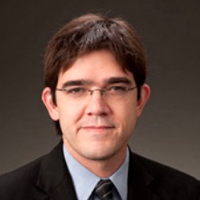Rascals case in brief
In the beginning, in 1989, more than 90 children at the Little Rascals Day Care Center in Edenton, North Carolina, accused a total of 20 adults with 429 instances of sexual abuse over a three-year period. It may have all begun with one parent’s complaint about punishment given her child.
Among the alleged perpetrators: the sheriff and mayor. But prosecutors would charge only Robin Byrum, Darlene Harris, Elizabeth “Betsy” Kelly, Robert “Bob” Kelly, Willard Scott Privott, Shelley Stone and Dawn Wilson – the Edenton 7.
Along with sodomy and beatings, allegations included a baby killed with a handgun, a child being hung upside down from a tree and being set on fire and countless other fantastic incidents involving spaceships, hot air balloons, pirate ships and trained sharks.
By the time prosecutors dropped the last charges in 1997, Little Rascals had become North Carolina’s longest and most costly criminal trial. Prosecutors kept defendants jailed in hopes at least one would turn against their supposed co-conspirators. Remarkably, none did. Another shameful record: Five defendants had to wait longer to face their accusers in court than anyone else in North Carolina history.
Between 1991 and 1997, Ofra Bikel produced three extraordinary episodes on the Little Rascals case for the PBS series “Frontline.” Although “Innocence Lost” did not deter prosecutors, it exposed their tactics and fostered nationwide skepticism and dismay.
With each passing year, the absurdity of the Little Rascals charges has become more obvious. But no admission of error has ever come from prosecutors, police, interviewers or parents. This site is devoted to the issues raised by this case.
On Facebook
Click for earlier Facebook posts archived on this site
Click to go to
Today’s random selection from the Little Rascals Day Care archives….
Click for earlier Facebook posts archived on this site
Click to go to
Today’s random selection from the Little Rascals Day Care archives….
‘Why hadn’t any of the suspects copped a plea?’ he wondered

Kuhlmwywe
Feb. 2, 2018
“In August 1983 [Manhattan Beach, Calif., police chief Harry] Kuhlmeyer was presented with the McMartin Preschool case. Therapists and medical doctors had identified dozens of McMartin children as sexual abuse victims. Raymond Buckey, the sole male teacher at the preschool owned by his grandmother Virginia McMartin, was the primary suspect….
“Parents demanded Buckey’s immediate arrest, but Kuhlmeyer refused. His detectives could find no corroborating evidence.
“ ‘Why hadn’t any of the suspects copped a plea, why no mea culpas, no suicides? No one got drunk and bared his soul. If everything the kids said happened, it looked like the perfect crime. Even the Mafia has snitches,’ Kuhlmeyer said.
“The Los Angeles County District Attorney’s office… drew up an arrest complaint about Buckey, but Kuhlmeyer refused to sign it. [The DA took the case to the grand jury, which routinely rubber stamps indictment requests.]
“Kuhlmeyer’s unpopular stance was vindicated seven years and $15 million in court costs later when two McMartin trials ended with no convictions.”
– From “Police chief during McMartin case refused to charge abuse suspects” by Kevin Cody in Easy Reader News (Jan. 31)
No such doubt, by either police or prosecutors, slowed the rush to put the Edenton Seven behind bars. The result, of course, was a disaster of McMartin dimensions.
Chief Kuhlmeyer died Jan. 12 in Santa Monica, Calif. He was 94.
![]()
Could we resolve to better next year?
 Dec. 28, 2013
Dec. 28, 2013
End-of-year grab bag from the wide world of justice delayed:
● Thanks to Professor P. S. Ruckman Jr. at Pardon Power for posting my comments on Andrew Junior Chandler.
● Two glimmers of light on misrepresented “genital scarring” and other examples of junk science – from Texas of all places!
● In New York a remorseful former judge testifies against his own verdict.
● Recently uploaded onto Vimeo by the Alfred I. duPont Awards: a three-minute, full-screen excerpt from “Innocence Lost”. (The complete series can be viewed from the “Innocence Lost” page of this website in small-screen format.)
● Gov. McCrory proves himself able to dispense clemency to LaMonte Armstrong – can he find it in his heart to be similarly just to the no less innocent Junior Chandler?
A theory on ‘the seeds of this case’
Oct. 26, 2011
“Many of the investigators in the Little Rascals case (seem to have been) poised to find allegations of sexual abuse.
“The seeds of this case may have been sown in the spring of 1988, months before the first allegations of child sexual abuse…. At a 3-day conference in the Outer Banks town of Kill Devil Hills, law enforcement and social services workers convened to learn about the dangers of child molesters operating day-care facilities.
“The seminar was co-sponsored by a counseling group and assisted by Judy Abbott, a social worker who would become one of the most active therapists for the child victims in this case. The featured speaker was Ann Burgess, editor of the book ‘Child Pornography and Sex Rings’ (1984).
“Also attending were H. P. Williams, who would co-prosecute the case, and Brenda Toppin, the Edenton police officer who was first to interview most of the children in the case and to advise parents of their abuse.”
– From “Jeopardy in the Courtroom: A Scientific Analysis of Children’s
Testimony” by Stephen J. Ceci and Maggie Bruck (1995)
This time, will NC Bar tell DAs to play fair?

cheshireparker.com
Brad Bannon
April 20, 2016
“‘If prosecutors have an ethical duty to avoid wrongful convictions, then they should have some sort of ethical duty to remedy wrongful convictions,’ said attorney Brad Bannon of the North Carolina Bar’s ethics committee.
“He wants North Carolina to adopt a rule recommended by the American Bar Association, requiring prosecutors to come forward if they find ‘new, credible and material evidence’ that an innocent person is serving time. Thirteen states have adopted the post-conviction rule. North Carolina isn’t among them.
“The State Bar rejected the rule several years ago but recently appointed a committee to reconsider….”
– From “Rule targets prosecutors who don’t reveal innocence evidence” by Martha Waggoner of the Associated Press (April 16)
Given prosecutors’ disproportionate influence on the state bar, to even “reconsider” the disclosure rule suggests the recent stream of unbecoming publicity hasn’t gone unnoticed.
![]()











0 CommentsComment on Facebook